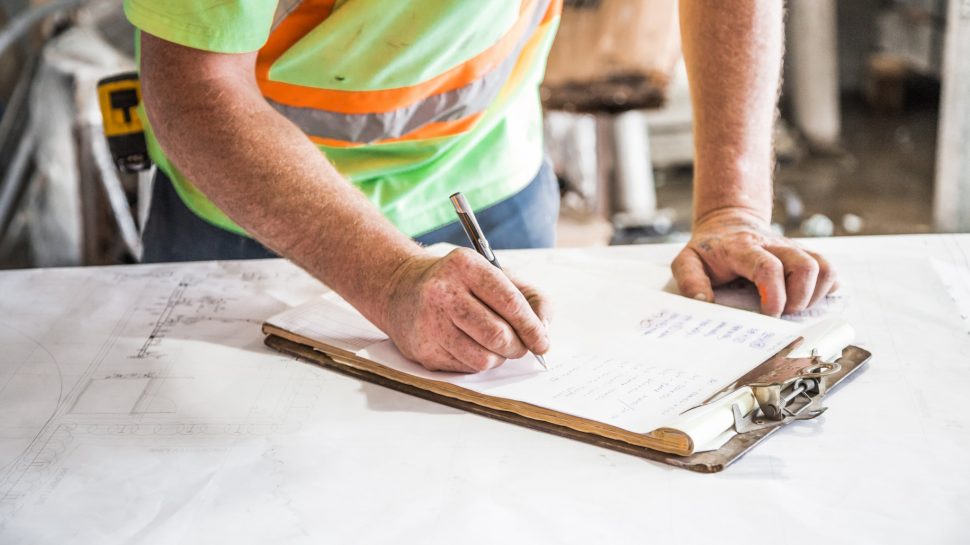If you’re looking to buy or sell a property, you need to know as much as you can about it. This is where conveyancing comes in. If you’re asking yourself what is conveyancing? our guide can tell you everything you need to know. Read on to find out how conveyancing works, how long it takes, how much it costs, and more.
FAQs
What is conveyancing of a property?
The conveyancing of a property is the legal process of transferring its ownership from one party to another. It starts when you accept an offer made on a property (or your offer is accepted if you’re the buyer). It ends with the completion of the sale.
What does the conveyancer do?
Your conveyancer is responsible for all the necessary checks and searches involved between the offer being agreed and the sale being completed. The conveyancer will provide you with all the information you need to fully understand the condition of the property. They will also file all the necessary paperwork with the relevant authorities – Land Registry, local council authorities, etc.
What is the process of conveyancing?
The process of conveyancing is generally split into six parts: instructing a conveyancer, property checks and searches, mortgage application, signing contracts, exchanging contracts, and completion:
Instructing a conveyancer: Usually, both the buyer and the seller ask a conveyancer to represent them in the property sale.
2. Property checks and searches: Your conveyancer checks all legal factors (planning permission, title deeds, etc) applying to the property. They also conduct searches to check for issues like flood risks, nearby power/sewerage lines, and area development plans.
3. Mortgage application: Your conveyancer will help you apply for a mortgage, if one is necessary. They will also have carried out a valuation of the property during part 2, to make sure it’s worth the agreed sum.
4. Signing contracts: If everything is in order, both parties can sign the contracts agreed to the sale at the agreed price. Before signing, all of the information from the checks and property searches will be made available.
5. Exchanging contracts: Once everything is checked and signed, both parties agree to a date to exchange contracts.
6. Completion: In preparation for the contracts being exchanged, your conveyancer will arrange for the transferral of funds from the buyer to the seller on the agreed date. On completion day, the funds are transferred, and the buyer can pick up the keys to the property. The conveyancer will also register the new owner details and arrange for the payment of stamp duty, if it applies.
Is a conveyancer a solicitor?
A conveyancer is a type of solicitor – one that specialises in conveyancing. If you want to know more about the different types of lawyer practising in the UK, read our post on lawyers and solicitors.
How much should a conveyancer cost?
The cost of a conveyancer will vary widely, depending on the value and situation of the property. The UK average conveyancing cost for buying or selling a property in 2020 was around £1000.
Can I do my own conveyancing?
You can do your own conveyancing, but you should think carefully before going down that path. There are many checks and legal processes to carry out in any property sale. They can take up a lot of your time and if you make a mistake it can end up costing you more than the average conveyancing fee.
If you want to know more about how to do your own conveyancing, read this guide from the HomeOwners Alliance.
How long does the conveyancing process take?
The conveyancing process should take around 8-12 weeks. Like the price, this will vary depending on the type and location of your property.
How can I speed up my conveyancing process?
There are several things you can do to speed up the conveyancing process. If you’re selling, make sure you’ve done your homework and have all the relevant information about the property to hand. Title deeds, Energy Performance Certificate – locating anything official that’s tied to the property might save you time and money.
If you’re the buyer, make sure your finances are in order. If you need a mortgage, your lender will need a detailed understanding of your financial situation before agreeing to one. Getting a lender’s agreement in principle before making an offer on the property can also speed things up.
Finally, you can book early for a surveyor to conduct the property valuation. Surveyors can often be booked up weeks in advance, so it pays to think ahead.
What is conveyancing there to do?
Conveyancing is designed to give both the property buyer and seller all the information they need to agree to the sale terms. It lets everyone know the exact state of the property and any risks or problems it might have. This allows the buyer to make an informed decision on whether to make the purchase or not.
Conveyancing can take a long time, but it required by law in any property sale and can save you from any number of nasty surprises.
We also have a guide on online conveyancing if you want to know more about how this might save you money.
HomeViews provides verified resident reviews of the UK’s housing developments. We’re working with developers, landlords and the Government to recognise high performers and help to improve standards in the built environment.
The post What is conveyancing? What does your conveyancer do? appeared first on HomeViews.

